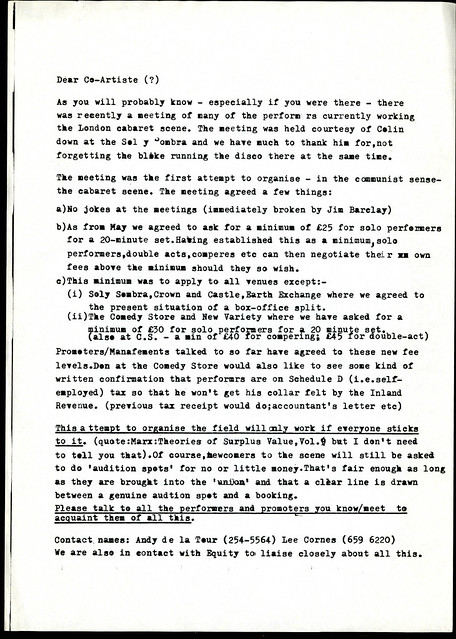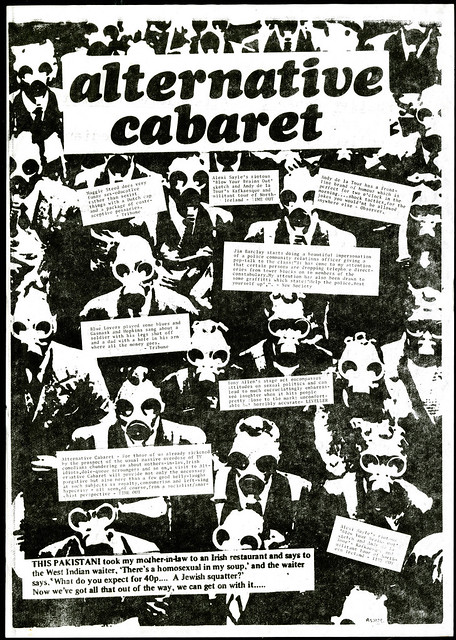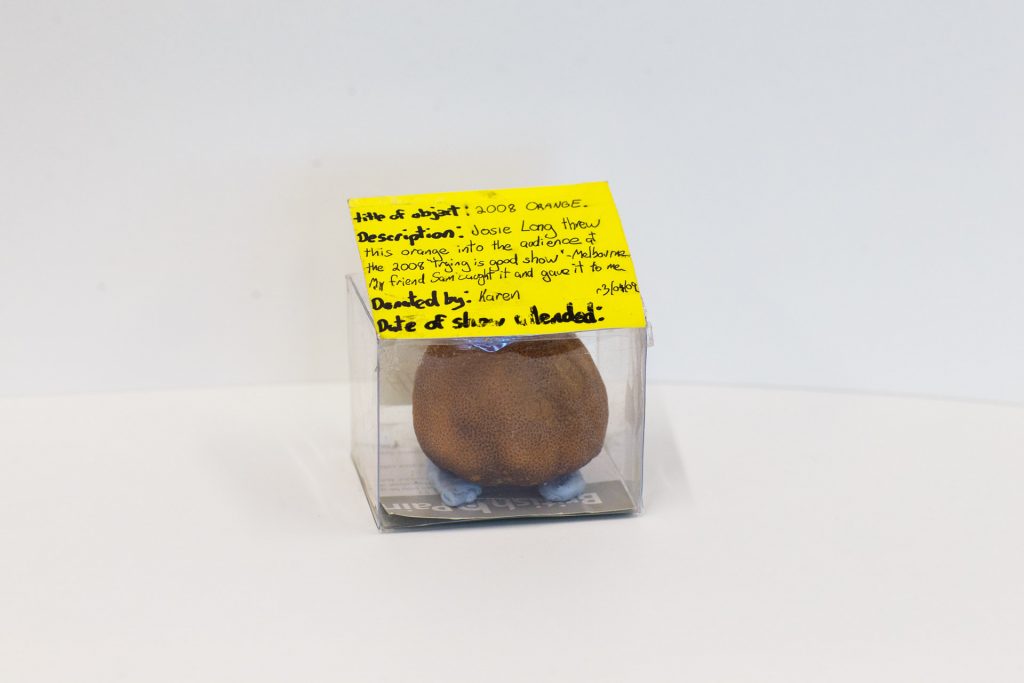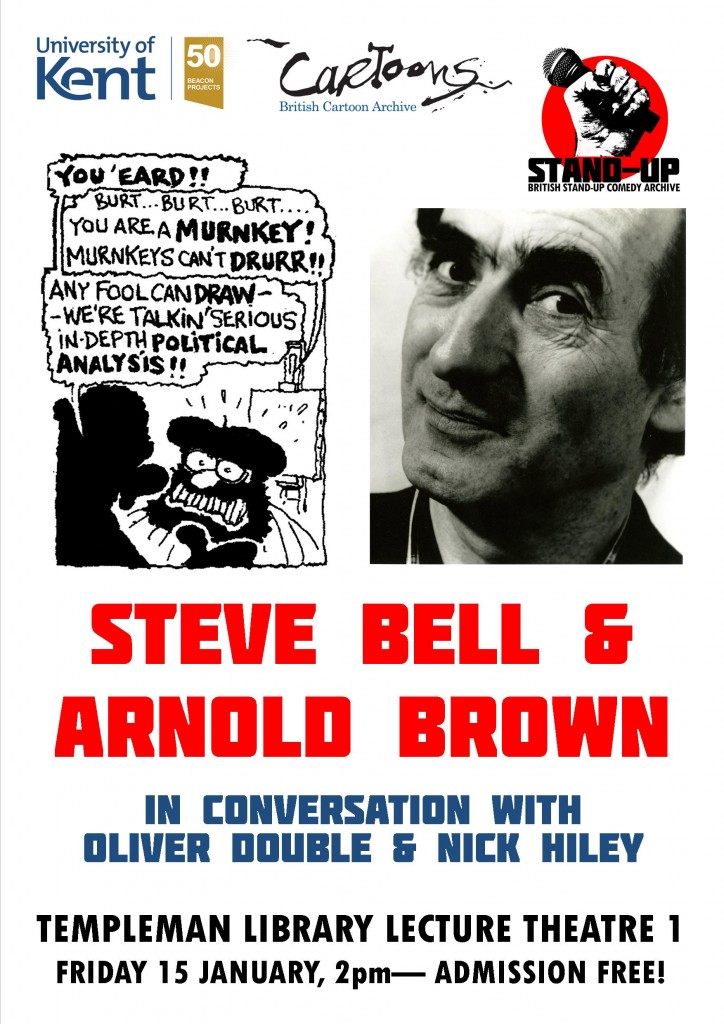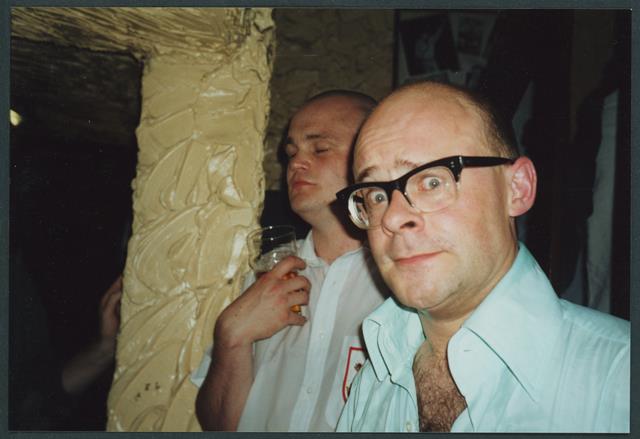1. The British Stand-Up Comedy Archive contains 22 collections; we have been collecting material since 2013.
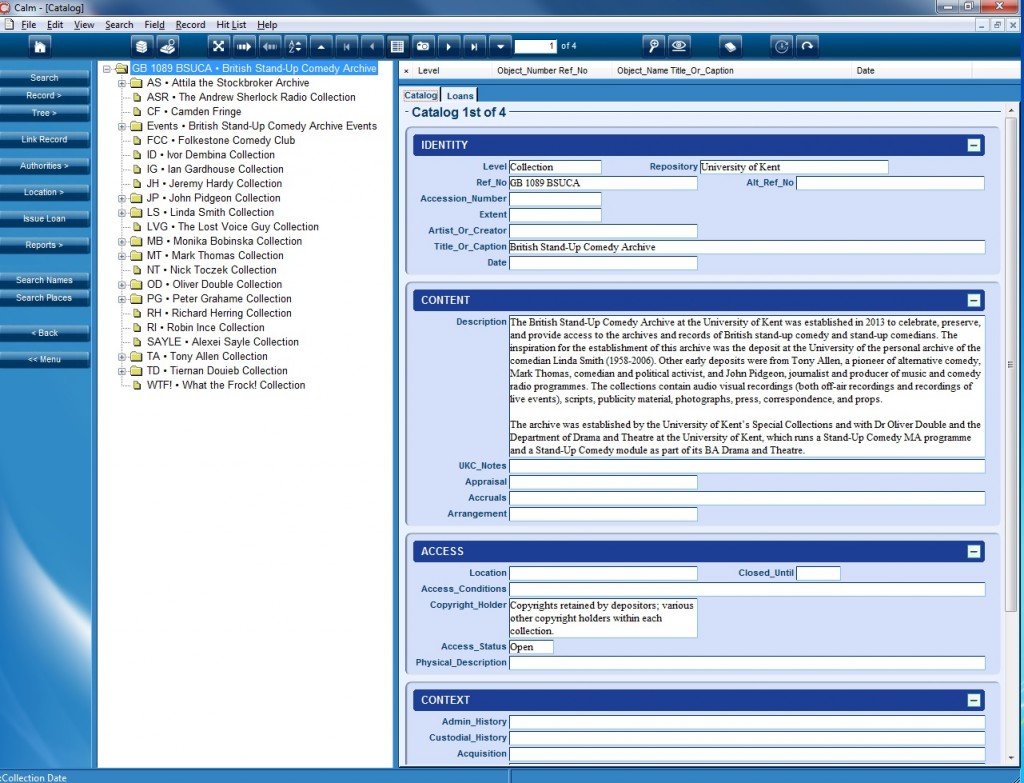
BSUCA collections on our Calm cataloguing system
2. We have material dating from 1970 to the present day, documenting the rise of alternative comedy and stand-up comedy. We are keen to collect material from relevant areas of performance including alternative cabaret, performance poetry and working men’s club comedy.
3. We have collected a range of material in a variety of formats (including photographs, scripts, diaries, audiovisual recording, posters, contracts) and for a variety of purposes (promotion, academic research, for broadcast).
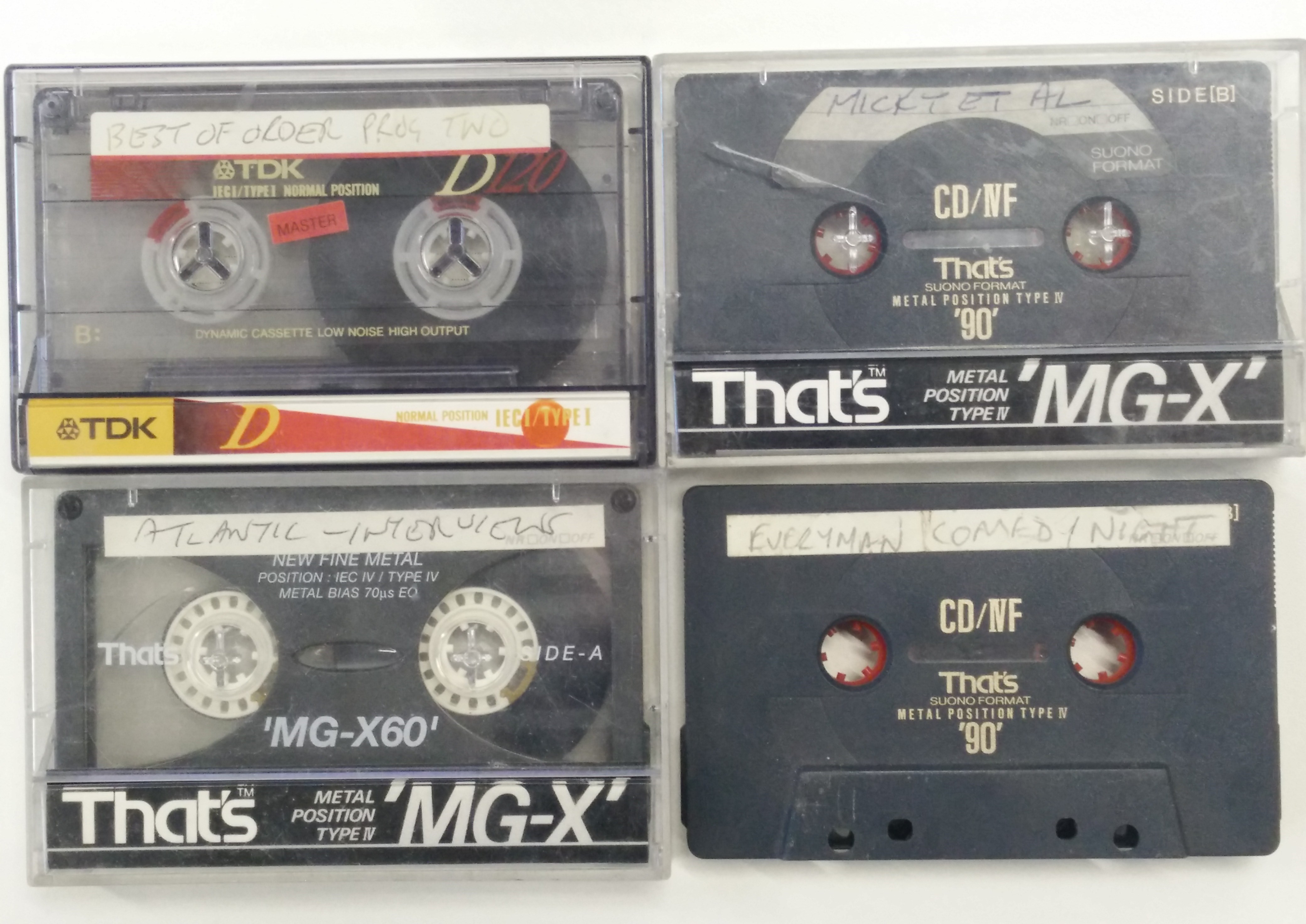
4. Throughout 2015 we have been developing new workflows to ensure that the recordings in the archive held on legacy audiovisual formats (such as cassette tapes, MiniDisc and DAT) are digitised and accessible for researchers today and in the future.
5. The digitisation of both printed and audiovisual material means that we can provide samples of representative content from the archive on platforms such as Flickr and Soundcloud as well as on our blog.
6. We have worked to ensure a range of content from the comedy world has been collected and we have been keen to engage with comedy promoters and venues. Monika Bobinska donated a large collection of material from the Meccano Club (1985-1995) and Peter Grahame has given material from Downstairs at the Kings Head (established in 1981). We also have material from more recent clubs and promoters, including The Folkestone Comedy Club and What The Frock! Comedy.

Meccano Club Bookings Book. February-March 1995. Featuring acts including Tracy Brothers, Al Murray, Nick Wilty and Dylan Moran. (c) Monika Bobinska
7. One strength of the BSUCA collections is the number of unique, unedited interviews with comedians, recorded for purposes including academic research and publication (Oliver Double Collection), and radio broadcast (John Pidgeon Collection, Andrew Sherlock Radio Collection).
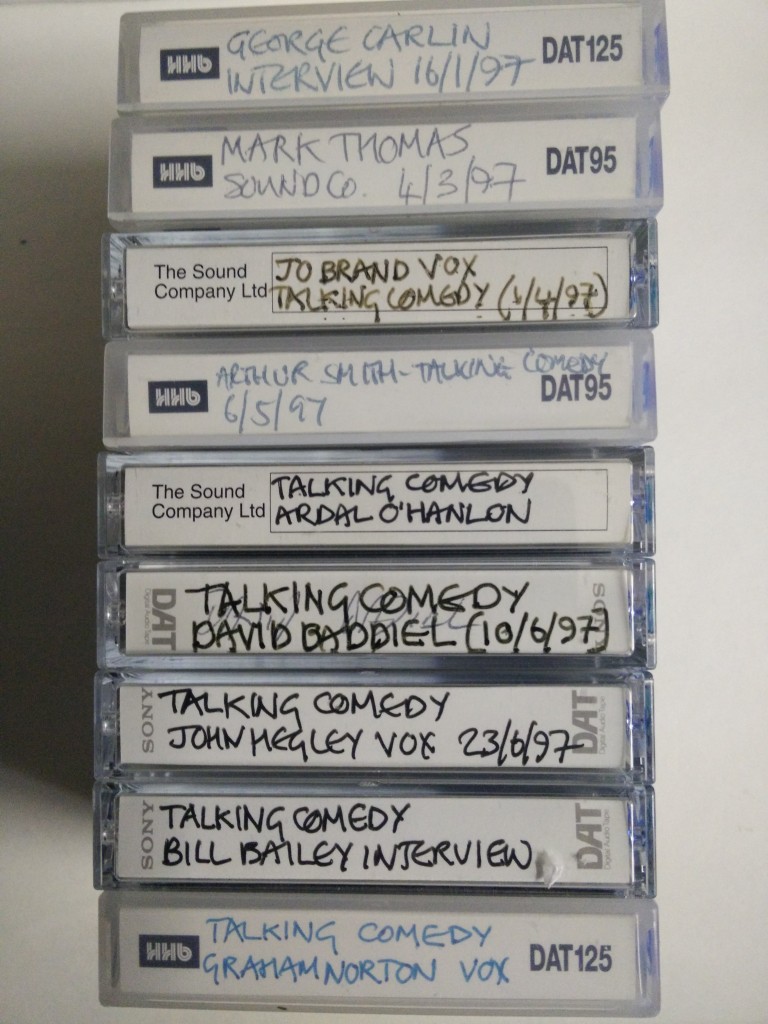
Interviews with comedians on DATs (Digital Audio Tapes) from the John Pidgeon Collection
8. We’ve had some incredible events this year, with performers such as Mark Thomas, Attila the Stockbroker, Richard Herring, Stewart Lee, and Phill Jupitus (at the University of Kent), and Jo Brand, Susan Calman, and Stephen K. Amos (at the Edinburgh Festival Fringe). These events were all recorded and can be accessed in our reading room at the Templeman Library, University of Kent.
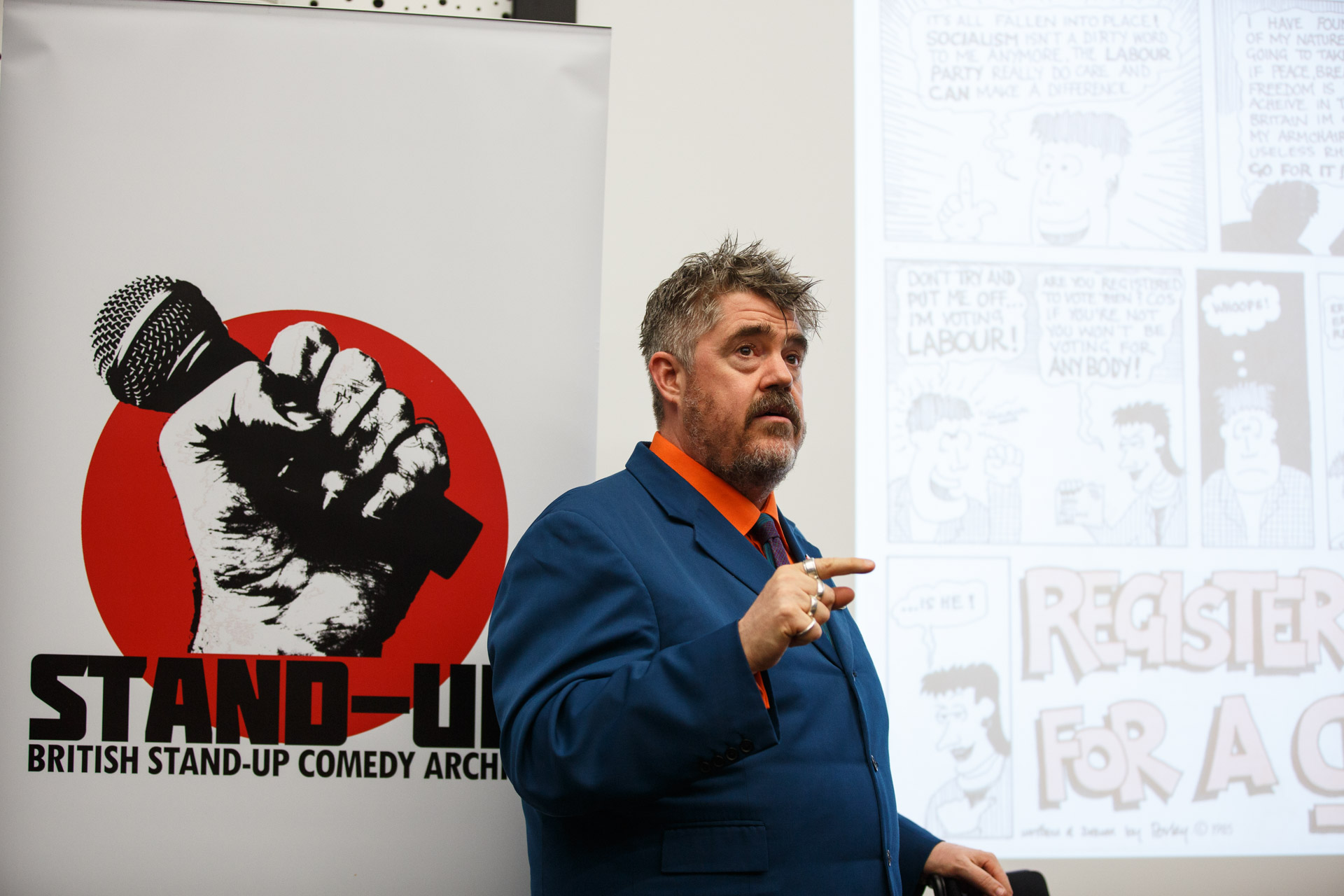
Phill Jupitus talking about a Red Wedge Comedy leaflet which cartooned for (as Porky the Poet) during an in-conversation event with Oliver Double in September 2015. Photo Matt Wilson
9. We are holding a joint conference with the British Cartoon Archive ‘Comedy On Stage and Page: satirical cartoons and stand-up‘ (14-15th January 2016), which will explore issues including the relationship between the audience and the comedian, writing shows, the comedy industry, censorship, and women in comedy, and also highlight the Stand-Up Comedy Archive collections.
10. Alongside the conference we will be hosting a joint exhibition with the British Cartoon Archive, providing access to material from the archive and explaining more about its establishment, development and collections in the new Templeman Library gallery area.
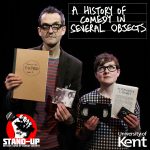 Episode 6 of ‘A History of Comedy in Several Objects’ is now available on iTunes and acast. In this episode we look at strongly-worded letter written to that legend of early alternative comedy, Jim Barclay. This angry missive was provoked by a riotous show by Alternative Cabaret at Goldsmiths College Students’ Union in 1979. Expect deviance, titillation and Keith Allen. We also have excerpts from an exclusive interview with Jim Barclay himself!
Episode 6 of ‘A History of Comedy in Several Objects’ is now available on iTunes and acast. In this episode we look at strongly-worded letter written to that legend of early alternative comedy, Jim Barclay. This angry missive was provoked by a riotous show by Alternative Cabaret at Goldsmiths College Students’ Union in 1979. Expect deviance, titillation and Keith Allen. We also have excerpts from an exclusive interview with Jim Barclay himself!